Search
Did you mean: Mosaic?
Summary 
Loading AI-generated summary based on World History Encyclopedia articles ...
Search Results
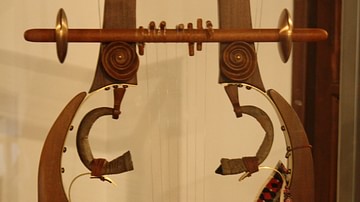
Definition
Ancient Greek Music
Music (or mousike) was an integral part of life in the ancient Greek world, and the term covered not only music but also dance, lyrics, and the performance of poetry. A wide range of instruments was used to perform music which was played...

Article
Music & Dance in Ancient Egypt
Music and dance were highly valued in ancient Egyptian culture, but they were more important than is generally thought: they were integral to creation and communion with the gods and, further, were the human response to the gift of life and...
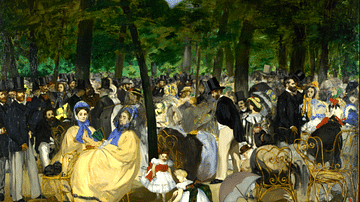
Image
Music in the Tuileries Gardens by Manet
An 1862 oil on canvas painting, Music in the Tuileries Gardens, by Edouard Manet (1832-83), the French modernist painter. This work has often been called the first modern painting since it broke the artistic convention that artists avoided...

Video
Music & Creativity in Ancient Greece - Tim Hansen
View full lesson: http://ed.ted.com/lessons/music-and-creativity-in-ancient-greece-tim-hansen You think you love music? You have nothing on the Ancient Greek obsession. Every aspect of Greek life was punctuated by song: history, poetry...

Image
Ancient Egyptian Music and Dancing
This painting from the Tomb of Nebamun (c. 1350 BCE) shows women making music and other almost naked women dancing.

Image
Western Classical Music, c. 1700-1950
An infographic showcasing the evolution of musical styles and the creative contributions of a plethora of classical composers through four distinct periods in art history: Baroque, Classicism, Romanticism, and Modernism.
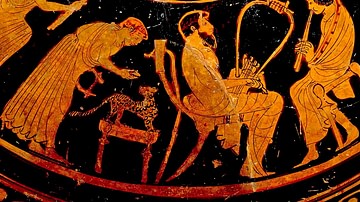
Image
Red-Figure Hydria Music Lesson
Close-up of a red-figure vase painting depicting a music lesson. In this section, two men play music while a boy and cat (alternately identified as a young panther) sit on the side. Attributed to "The Agrigento Painter". Produced in Attica...
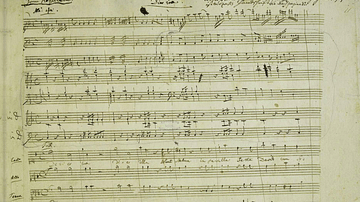
Image
Mozart's Music for his Requiem
A facsimile sheet of the music handwritten by Wolfgang Amadeus Mozart (1756-1791) of the composer's Requiem (1791).
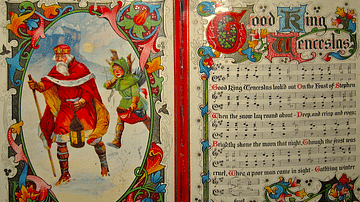
Image
Good King Wenceslas Carol Music
A 1913 biscuit tin showing Good King Wenceslas, the Bohemian duke and saint Wenceslaus I (r. 921-935), and the music for the Christmas carol of that name. The lyrics were written by John Mason Neale (1818-1866). Tin made by Hudson, Scott...
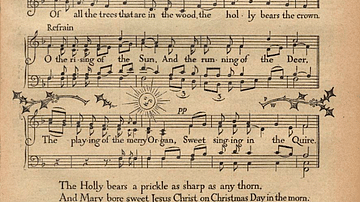
Image
The Holly & the Ivy Sheet Music
A page of sheet music for the Christmas carol The Holly and the Ivy. From a 1926 issue of the Radio Times magazine.